MercoPress. South Atlantic News Agency
Tag: UNICEF
-
Tuesday, June 18th 2019 - 08:45 UTC
Billions suffer from poor access to water, sanitation and hygiene, says Unicef and WHO report

Billions of people around the world are continuing to suffer from poor access to water, sanitation and hygiene, according to a new report by UNICEF and the World Health Organization. Some 2.2 billion people around the world do not have safely managed* drinking water services, 4.2 billion people do not have safely managed sanitation services, and 3 billion lack basic** hand-washing facilities.
-
Saturday, March 2nd 2019 - 04:52 UTC
UNICEF warns of global spike of measles; includes Brazil and Venezuela

Ninety-eight countries reported more cases of measles in 2018 compared with 2017, and the world body warned that conflict, complacency and the growing anti-vaccine movement threatened to undo decades of work to tame the disease.
-
Friday, December 14th 2018 - 08:54 UTC
A third of the Argentine population is considered poor
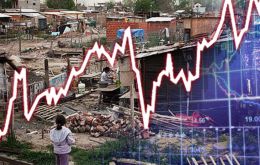
Poverty in Argentina has risen to its highest in eight years, a new report has revealed, with more than a third of the population now considered to be poor. The new survey, from the Catholic University of Argentina's Social Debt Observatory, found that 33.6% of Argentines were living below the poverty line in the third quarter of the year.
-
Saturday, September 22nd 2018 - 08:37 UTC
WHO publishes “Coming of Age” on better health for adolescents

The World Health Organization has published “Coming of age”, an in-depth online feature to advocate for better health for adolescents. The package includes video, gifs, visuals, and features on a range of topics on adolescent health, spanning mental health, sexuality education, as well as violence against and among youth, which remains a leading cause of adolescent deaths world-wide.
-
Tuesday, July 17th 2018 - 21:59 UTC
Zica epidemic and recession have hit the infant mortality rate in Brazil
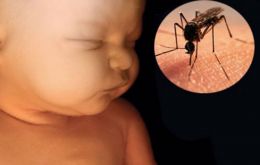
The infant mortality rate in Brazil, which consistently went down since 1990, started going up in 2016. It is believed that the rate for 2017 will also be higher than the 2015 rate. Both the Zika epidemic and the country's economic recession have been highlighted by the Ministry of Health as causes for the rising infant mortality rate.
-
Thursday, April 12th 2018 - 09:04 UTC
WHO and UNICEF issue new guidance to promote breastfeeding in health facilities
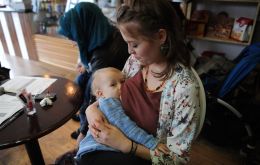
WHO and UNICEF today issued new ten-step guidance to increase support for breastfeeding in health facilities that provide maternity and newborn services. Breastfeeding all babies for the first 2 years would save the lives of more than 820 000 children under age 5 annually.
-
Wednesday, January 31st 2018 - 09:33 UTC
Unicef and Caritas confirm growing and extended malnutrition in Venezuela
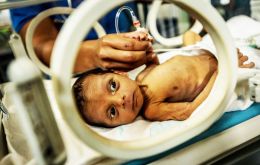
The U.N. children's agency UNICEF said it was seeing clear signs of a growing malnutrition crisis in Venezuela, but it lacked data to give precise information and to tackle the problem effectively.
-
Tuesday, December 26th 2017 - 09:37 UTC
UNICEF has new Executive Director, Henrietta H. Fore

UNICEF welcomed UN Secretary-General Antonio Guterres’ announcement that Henrietta H. Fore will succeed Anthony Lake as UNICEF Executive Director when his term ends on 31 December 2017.
-
Thursday, March 23rd 2017 - 11:25 UTC
“Nothing can grow without water,” warns UNICEF, as 600 million children could face extreme shortages
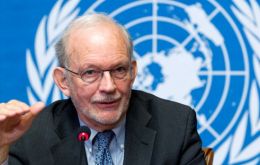
Some 600 million children – or 1 in 4 children worldwide – will be living in areas with extremely limited water resources by 2040, according to a UNICEF report released on World Water Day, 22 March.
-
Friday, May 6th 2016 - 08:32 UTC
Four million Argentine children live in poverty conditions, according to Unicef
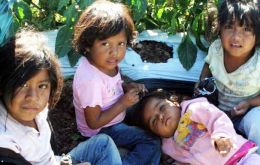
Almost four million children in Argentina are poor and 8.5% live in extreme poverty, according to a report from UNICEF which measures multidimensional poverty which considers 28 indicators such as nutrition, access to healthcare, exposure to violence, among other more traditional references.
